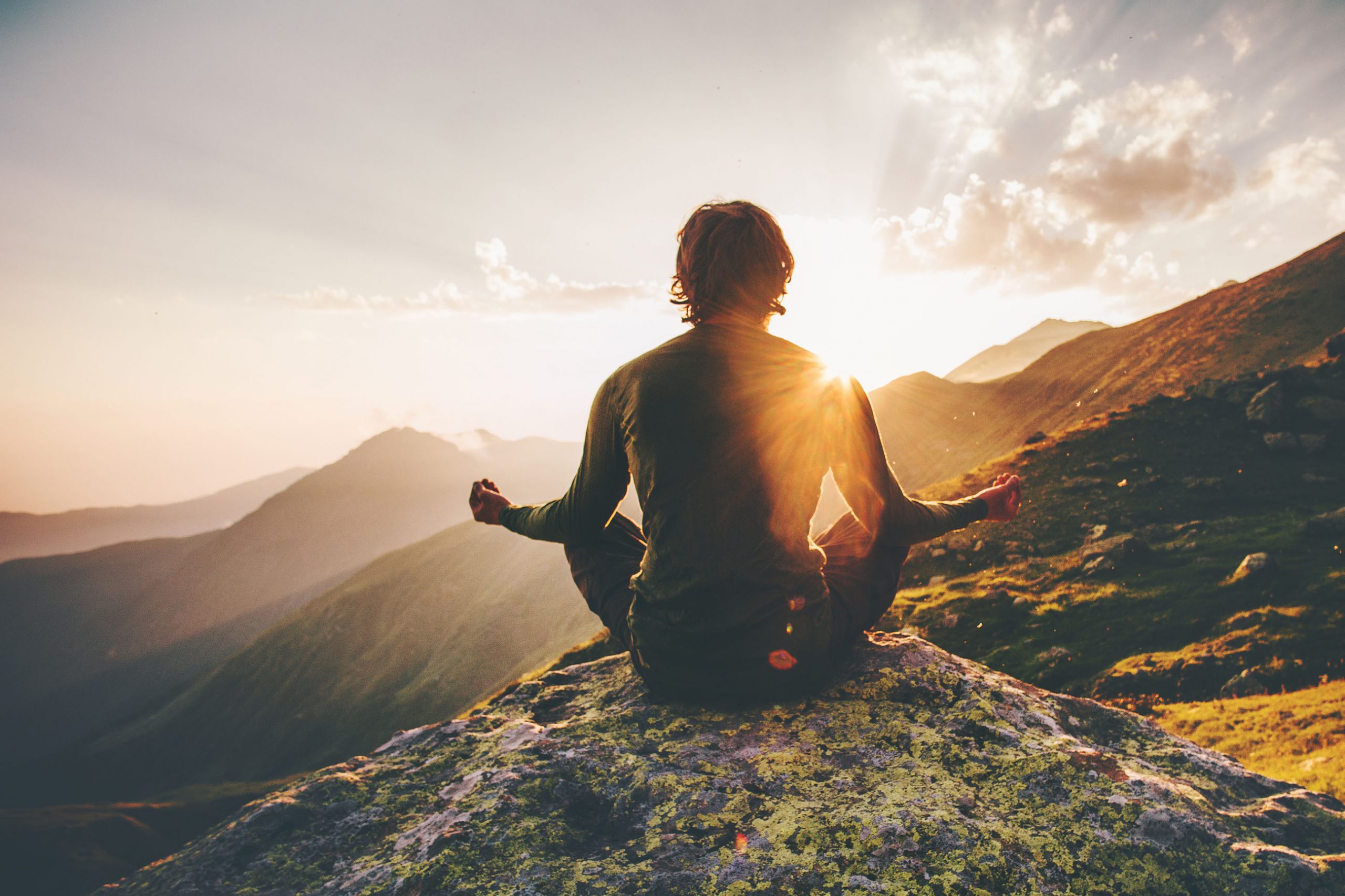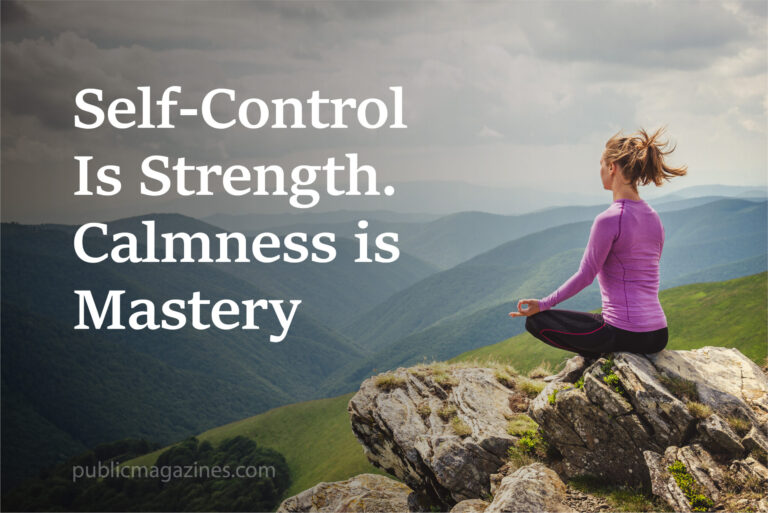In a world that moves at breakneck speed, where the buzz of technology, the pressure of competition, and the constant quest for success can easily overwhelm, the ancient wisdom of self-control and the power of calmness stand out as beacons of hope and guidance. “Self-control is strength. Calmness is mastery. You – Tymoff” is not just a mantra but a transformative philosophy that encourages a deeper understanding of oneself and the mastery over one’s reactions to the external world. This article explores the multifaceted dimensions of self-control and calmness, unraveling how these virtues can be cultivated to lead a life of balance, achievement, and serenity.
The Essence of Self-Control
Self-control, fundamentally, is the ability to regulate one’s emotions, thoughts, and behaviors in the face of temptations and impulses. It’s a mark of inner strength, a quality that enables individuals to avoid impulsive actions and choose responses that align with their long-term goals and values. The essence of self-control lies in its capacity to empower individuals to resist the immediate allure of instant gratification for the sake of more significant, enduring rewards. This discipline is crucial in every aspect of life, from managing financial decisions and maintaining healthy eating habits to fostering strong relationships and achieving professional success.
The Power of Delayed Gratification
At the heart of self-control is the principle of delayed gratification, the ability to wait for what we want. This principle is exemplified in the famous Marshmallow Experiment by psychologist Walter Mischel in the late 1960s. The study demonstrated that children who could resist the temptation of an immediate reward in favor of a larger reward later on tended to have better life outcomes, as measured by various indicators of success. This pivotal research underscores the profound impact of self-control on our personal and professional lives, highlighting its role in academic achievement, emotional well-being, well-being, and overall life satisfaction.
Calmness as Mastery Over Oneself
Calmness, on the other hand, is the ability to maintain peace and tranquility within oneself, even in the face of adversity or stress. It manifests emotional intelligence and self-mastery, where one remains composed and clear-headed, making informed decisions rather than reacting impulsively. Calmness is not merely a passive state but an active practice of mindfulness, reflection, and emotional regulation. It enables individuals to approach life’s challenges with a balanced perspective, fostering resilience and a positive outlook.
The Virtue of Mindfulness
Mindfulness is a cornerstone of achieving calmness. It involves being fully present in the moment and aware of our thoughts, feelings, and sensations without judgment. By practicing mindfulness, individuals can cultivate a state of calm that permeates all aspects of their lives, enhancing their ability to cope with stress, anxiety, and uncertainty. This practice encourages a detachment from the chaos of external circumstances, allowing for a more thoughtful, measured approach to life’s obstacles.

Integrating Self-Control and Calmness into Daily Life
The journey toward mastering self-control and calmness is a continuous process that requires dedication, patience, and practice. Here are strategies to incorporate these virtues into your daily life:
Developing a Routine
Establishing a routine can significantly enhance self-control by reducing the decisions you must make each day, thereby conserving willpower. A structured daily schedule that includes time for work, exercise, relaxation, and personal growth can help maintain focus and discipline.
Setting Clear Goals
Clear, achievable goals provide direction and motivation, making exercising self-control to pursue these objectives easier. Goals should be specific, measurable, attainable, relevant, and time-bound (SMART), providing a personal and professional development roadmap.
Practicing Gratitude and Positivity
Cultivating a mindset of gratitude and positivity can reinforce calmness by shifting focus away from stress and negativity. Regularly practicing gratitude, such as keeping a gratitude journal, can enhance emotional well-being and resilience.
Engaging in Mindfulness and Meditation
Mindfulness exercises and meditation are powerful tools for developing calmness and self-control. These practices help manage stress, improve focus, and enhance emotional regulation, contributing to a more balanced and peaceful life.
Embracing Emotional Intelligence
Emotional intelligence is the bedrock upon which self-control and calmness are built. It involves recognizing, understanding, and managing our own emotions, as well as empathizing with the emotions of others. By developing emotional intelligence, individuals can respond to situations with a balanced mix of emotion and logic, ensuring responses are measured and appropriate. This ability to manage one’s emotions directly correlates with enhanced self-control and the capacity to remain calm under pressure, facilitating better relationships, improved work performance, and overall life satisfaction.
The Role of Physical Health in Self-Mastery
Physical health and mental well-being are deeply interconnected. Regular physical activity, adequate sleep, and a nutritious diet play critical roles in our ability to exercise self-control and maintain calmness. Exercise, for instance, not only strengthens the body but also releases endorphins, which reduce stress and enhance mood. Similarly, quality sleep is essential for cognitive function and emotional regulation, supporting our capacity for self-control and calmness. By prioritizing physical health, we lay a strong foundation for mental and emotional resilience.

Building Resilience Through Challenges
Resilience is the ability to bounce back from adversity, and it’s closely linked to self-control and calmness. Facing and overcoming challenges not only tests our limits but also provides invaluable lessons in perseverance. Each obstacle overcome reinforces our belief in our ability to handle stress and adversity, thereby enhancing our self-control and ability to remain calm in future situations. Building resilience involves stepping out of our comfort zones, embracing failure as a learning opportunity, and viewing challenges as stepping stones rather than stumbling blocks.
The Impact of Social Connections
Humans are inherently social beings, and our relationships play a significant role in our quest for self-control and calmness. Positive social connections can offer support, reduce stress, and provide a sense of belonging and community. Sharing experiences and challenges with friends, family, or support groups can lighten emotional loads and provide different perspectives, contributing to a calmer, more balanced approach to life’s challenges. Moreover, observing and learning from others’ approaches to self-control and calmness can inspire and motivate us to cultivate these qualities in ourselves.
Leveraging Technology for Mindfulness
In an age where technology often contributes to stress, it can also be a tool for promoting mindfulness and calmness. Numerous apps and online platforms offer guided meditations, mindfulness exercises, and educational resources designed to enhance self-control and encourage a peaceful state of mind. Leveraging technology in this way can provide accessible, flexible means for individuals to incorporate mindfulness practices into their daily routines, promoting mental health and emotional well-being.

The Science of Habit Formation
Understanding the science behind habit formation can be a game-changer in cultivating self-control and calmness. Habits are formed through repetition and reinforcement, gradually becoming automatic responses. By consciously creating routines that prioritize self-control and calmness, such as daily meditation, exercise, or reflection, these practices can become ingrained habits. Utilizing principles such as cue-routine-reward cycles can facilitate the development of new, positive habits, replacing less desirable ones and moving us closer to our ideal selves.
Conclusion
“Self-control is strength. Calmness is mastery. You – Tymoff” is more than just a saying; it’s a philosophy for life. By embracing and practicing self-control and calmness, individuals can navigate the complexities of the modern world with grace and determination. These virtues enable us to face challenges with resilience, make thoughtful decisions, and lead lives that are successful, fulfilled, and balanced. Remember, the journey toward self-mastery is personal, and it begins with the simple yet profound realization that true strength and mastery come from within.

